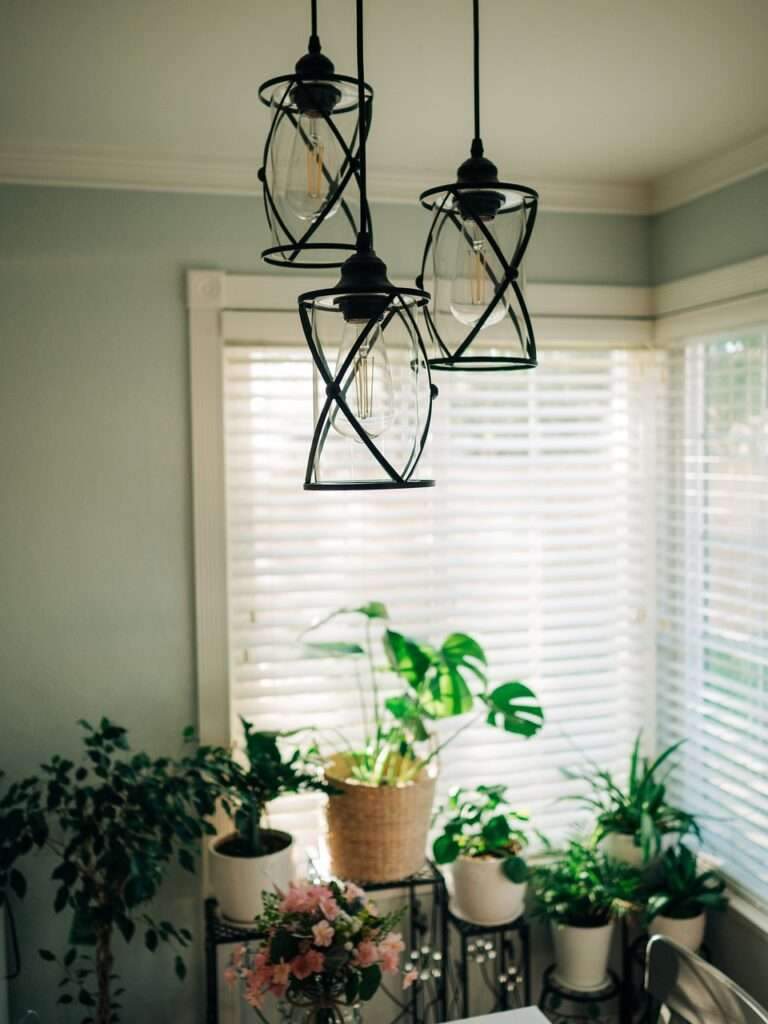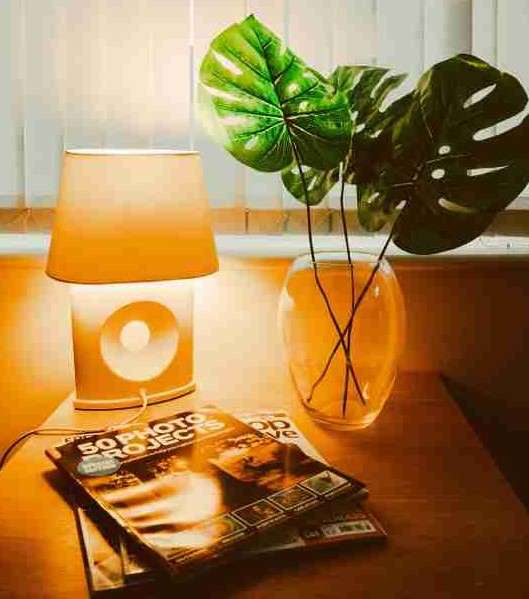So, you’ve decided to turn your living space into a mini-jungle, but you’re wondering, Do regular light bulbs help plants grow? Well! It’s a valid question and in this article, we will explore the science behind plant growth and the role of light. We will also examine the different types of light bulbs available and their effectiveness in promoting plant growth.
The research was done to understand the growth of plants in various lighting conditions, here is the research paper, titled “Effects of Different Light Sources on the Growth of Plants,” published in the International Journal of Agriculture and Biology in 2011 ebook. The study aimed to determine the effectiveness of different types of light sources, including regular household light bulbs, on plant growth.
The Plant-Light Romance
In this Article
Plants are like the ultimate solar chefs. They take sunlight, mix it with some magic (a.k.a. photosynthesis), and voilà—nutrients for growth. But, what happens when you bring regular light bulbs into this plant-light romance? Let’s break it down.
Why Regular Bulbs Might Not Be Plant BFFs
Think of your plant’s growth diet as a fancy buffet. Sunlight offers the whole feast, but regular bulbs? They’re more like a snack table with limited options. These bulbs, which you use for your cozy reading corner, might not have the right stuff plants crave for a fast-growth party.
The Cool Kids: Specialized Light Bulbs
Now, let’s talk about the cool kids in the lighting world—fluorescent grow lights, LED grow lights, and High-Pressure Sodium (HPS) lights. These bulbs are like the VIPs of the plant illumination scene.

- Fluorescent Grow Lights: They’re the all-around champs, perfect for your plant’s early days and leafy greens. It’s like giving your plant a balanced diet. Example: It’s like the difference between a basic sandwich and a loaded salad. Your plant deserves the salad treatment.
- LED Grow Lights: These are the tech-savvy superheroes. They’re energy-efficient and let you customize the light show for different plants. It’s like having a remote control for your plant’s mood lighting. Example: Imagine your plant having its disco party with lights perfectly synced to its growth stage.
- High-Pressure Sodium (HPS) Lights: They’re the flower power players. Emitting warm, cozy tones, they’re perfect for the flowering phase. Example: It’s like setting the mood for your plant’s date night with soft, romantic lighting.
The Regular Bulb Struggle
Now, let’s talk about the regular bulbs—the unsung heroes of your living room. While they might cast a warm glow for your Netflix binge, the question remains, “Do regular light bulbs help plants grow?”
- Limited Spectrum: Picture your plant asking for a rainbow, but the regular bulb only offers a few colors. Not exactly Insta-worthy for your plant.
- Heat Drama: Regular bulbs can be a bit dramatic, emitting heat like they’re on a tropical vacation. Your delicate plants might not appreciate the burn.
- Energy Inefficiency: They’re not the greenest bulbs in the bunch. Energy-wise, they’re like that one friend who always forgets to turn off the lights.
Tips for Making Regular Bulbs Work
If you’re stuck with regular bulbs, don’t panic. You can still make it work and keep your plants reasonably content. The real question is, “Do regular light bulbs help plants grow?”
- Get Up Close and Personal: Your plant and the regular bulb need to be BFFs. Place them close but not too close—it’s like giving your plant a warm hug without the risk of burning.
- Time Extension: Since regular bulbs are like the fast food of plant lighting, give your plant a bit more exposure time. It’s like compensating for a not-so-healthy snack with an extra workout.
- Sunshine Boost: If possible, let your plant bask in some real sunlight. It’s like giving them a spa day after a week of ordinary light.
How Long Should You Keep Regular Bulbs On?
How many hours a day should your regular bulb shine for your indoor plants? The answer varies based on the type of plants you have and their specific light requirements.
1. Low-Light Plants:
- For plants that thrive in low-light conditions, around 10-12 hours of light per day from a regular bulb can be sufficient.
- Examples include snake plants, pothos, or ZZ plants.
2. Medium to High-Light Plants:
- If you have plants that prefer medium to high-light conditions, you might need to supplement regular bulb light with natural sunlight.
- Aim for 14-16 hours of combined light exposure, including both natural and artificial light.
- Examples include flowering plants or those with colorful foliage.
Check out some collections of indoor air-purifying plants that will enhance your living area while purifying your indoor space air-purifying plant.
Conclusion: do regular light bulbs help plants grow?
Now that we’ve examined the different types of light bulbs available, let’s answer the question: will a regular light bulb help plants grow? The short answer is yes, but not as effective as other types of light bulbs. Regular light bulbs, such as incandescent and halogen bulbs, are not designed to promote plant growth and are not efficient at producing the type and quality of light that plants need.
FAQ’s
Do you need special lights for grow lights?
Yes, you do need special lights for grow lights. Regular household lights are not suitable for promoting plant growth because they do not emit the specific wavelengths of light that plants need. Grow lights are designed to produce the right spectrum of light for photosynthesis and other plant processes. Various types of grow lights are available, such as fluorescent and LED lights, that are optimized for plant growth. Using the right grow lights can help ensure healthy and productive plants.
What Colour light is best for plants?
Blue light helps with vegetative growth, while red light is more helpful for flowering and fruiting. However, plants also need other colors like green and yellow for overall health. The specific light requirements can vary depending on the type of plant
Can Christmas lights help plants grow?
Unfortunately, Christmas lights won’t help if you’re looking to promote plant growth. While they do emit some light, it’s not the right kind of light that plants need to thrive. Also, the amount of light produced by Christmas lights is not sufficient to meet the needs of plants. It’s better to use specialized grow lights that are designed to provide the specific spectrum and intensity of light that plants require for optimal growth.
We hope that this article will help you to understand do regular light bulbs help plants grow. please write us at [email protected] if this is helpful
